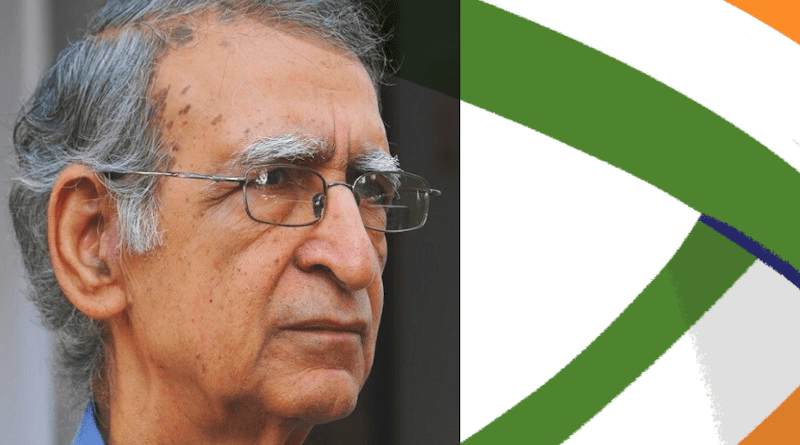Challenges To Indian Democracy: Call For Multilayered Struggle – OpEd
By K.M. Seethi
India is on the threshold of the 75th year of its independence. Even as the political system has undergone several twists and turns, India as a nation has been striving to grapple with all pressures of both internal and external challenges. However, as a country of 1.38 billion people, it is of paramount importance how the negotiations for ensuring the basic principles of freedom, equality, and fraternity are bringing forth concrete results after 75 years of independence. Here, the role of the state and civil society is critical. Though India has achieved multifaceted social and economic progress, there are umpteen issues that remain unresolved and the new ones that have emerged in the recent past started threatening the very life-world conditions of the people. This is one of the major themes of discussion initiated by Vakkom Moulavi Memorial and Research Centre (VMMRC), Kerala in association with the Centre for Study of Society and Secularism (CSSS), Mumbai in connection with India’s 75th Year of Independence.
Delivering the ‘Distinguished Lecture’ on “Challenges to Indian Democracy,” Professor Ram Puniyani, former faculty at the Indian Institute of Technology, Mumbai called for a “multilayered struggle against communalism, poverty, unemployment, and campaign for the rights of workers, farmers, small traders, marginalised communities and women’s security.” Puniyani said that our democratic rights are undermined today both covertly and overtly. “Critiquing the government is a course correction. If it is labelled as anti-national, obviously the democracy will go on a decline. In the global space, the freedom of the press and freedom of religion are the two markers of our freedom. And India is constantly and rapidly sliding down,” he pointed out.
Puniyani said that Nehru had foreseen the danger of the use of religion in politics. “In our contemporary times, the use of religion has increased to a dangerous level in India. Issues related to religious identity touch the cord of emotions. As such, emotive issues based on religion pose a major challenge to democracy. Politics today comes under the garb of religion. Consequently, democracy is stifled by such trends from multiple sources.”
Puniyani noted that “communal politics is based on a distorted version of history. Spreading misconceptions of history has become part of social common sense, grounds on which hatred can be constructed. We cannot save democracy unless we remove the hatred that has been drilled into our minds.” He said that “even as communal violence was on the increase, the victims hardly get justice.” Puniyani pointed out that those who had fought for justice are being intimidated and arrested. He cited the instances of the fate of Teesta Setalvad and many others who are incarcerated under different false charges.
On the issue of beef controversy, Puniyani said that many people were lynched in the recent past. He recalled that beef was part of food habits from Vedic times. Ambedkar had written about it. Even earlier, Swami Vivekananda testified this. Puniyani also pointed to the findings of historians like D.N. Jha, who traced the history of beef consumption in Vedic times.
Puniyani warned that when communal violence polarises society along religious lines, democratic norms cannot be sustained. The marginalisation of minorities (both Christians and Muslims) and Dalits is an everyday reality. Communal violence is downgrading democratic values. He said that “We must have constant campaigns at the grassroots level. We must get connected to society and communicate the values of pluralism and diversity. Unless we fight against hatred, which is so deep-rooted, democracy cannot flourish. If minorities, Dalits and women are marginalised, democracy cannot progress,” he added. Puniyani reminded: “democracy is not a finished product. It is a journey in which we begin from a formal democracy and go to substantive levels of its operation. This is not a sudden process. This is a historical process of deepening the democratic culture.” Hence it requires patience and persuasion in sustaining it.
Irfan Engineer, Director, CSSS chaired the session. He said that India is so diverse that if this pluralistic character is to remain, democracy must play an important role. A danger threatening this diversity is the rise of ethnolinguistic nationalism which has played havoc in neighbouring countries like Pakistan and Bangladesh, and we should not allow this to happen and sharpen in a complex country like India. This calls for internal reforms in all religions and communities and this self-critical process will only strengthen a democratic culture in India. Engineer also said we need to be active citizens to place ourselves to be responsible for sustaining a vibrant democracy.”
Prof Ram Puniyani is an accomplished scholar and a fearless social critic whose interventions and writings continue to inspire all generations. He served as a Professor of Biomedical Engineering at IIT, Mumbai for nearly three decades and devoted his entire life to the cause of human rights, secular values, and fighting against communalism, and all authoritarian tendencies. He has been part of several people’s commissions for the dispensation of justice and liberty. Prof Ram has also been a prolific writer and orator. There are more than three dozen books and hundreds of articles to his credit. Irfan Engineer is currently Director of CSSS, and Editor of the ‘Indian Journal of Secularism.’


Excellent narration of the academic event by Prof. KM Seethi. Thanks